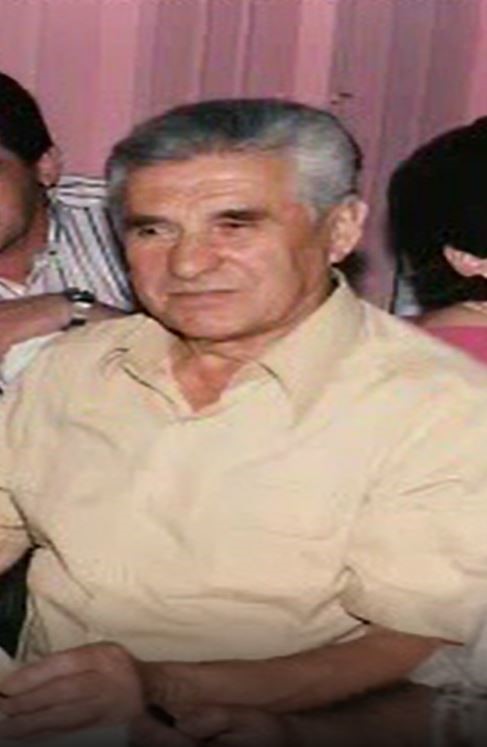Mikhail Pronman was born in 1918 in the village of Baranivka in the Zhytomyr Region of Ukraine, as Moyshe Pronman. His father Volf was a craftsman. In the 1930s, following the end of NEP (the New Economic Policy) in the Soviet Union, he quit his workshop and went to work at a factory. Moyshe had five siblings (one of his brothers died in 1923). Upon finishing a Yiddish school, Moyshe/Mikhail went to Zhytomyr and entered the local technikum (technical school) for wood processing. Afterward, he moved to Voroshilovgrad (present-day Luhansk, Ukraine), where he worked at a furniture factory. In 1939, Pronman was drafted into the Red Army.
Pronman served as a radio operator at the HQ of the 5th Army, which was then deployed in the newly annexed southeastern Poland (now Western Ukraine). He finished a sergeant course and received the rank of sergeant. Following the outbreak of the Soviet-German War in June 1941, the Fifth Army began to retreat. It took part in the abortive defense of Kiev. On September 22, 1941, near Poltava in central Ukraine, Pronman was seriously wounded by a shell fragment and taken prisoner by the enemy. In captivity, he passed himself off as Mikhail Prokopenko, an ethnic Ukrainian. Pronman went through several German POW camps in Ukraine. He would later attribute his survival in these camps to good luck.1
In March 1942, near the town of Khmelnitskii, Pronman-Prokopenko and two of his fellow POWs managed to escape from the camp. He spent two months at a Ukrainian hospital in Khmelnitskii. After being discharged, he was able to "legalize" his existence in German-occupied territory by procuring the documents of a former Ukrainian POW, which allowed him to live openly in the area. In late 1942, while working at the local railway station, Mikhail joined an underground resistance organization. He took part in several anti-Nazi actions.
In March 1944, the town of Khmelnitskii was liberated by the Red Army. Two weeks later, Pronman re-enlisted in the Red Army. His screening by the army's counter-espionage agencies went relatively smoothly, thanks to his status as a former underground fighter, which was equated to service with the partisans. The cautious Pronman kept his Ukrainian alias of Prokopenko for the remainder of his military service, until the end of the war. In April 1944, Pronman was attached to the 305th Rifle Division, where he served at a field warehouse of artillery ammunition. His duties included loading ammunition onto a military truck, and then driving it. Two weeks after his re-enlistment, during the battles for Czernowitz, he was seriously wounded, and went on to spend four months in hospital. During his hospitalization, in June 1944, Pronman was promoted to the rank of sergeant major (starshina) and awarded the Order of the Red Star. After his recovery, he was put in charge of the ammunition storage. He also took part in the crossing of the Vistula and the Oder in 1945. He met V-E Day in Potsdam.
Pronman's entire family – except for his sister Sofia, who fought with the Soviet partisans –was murdered by the Nazis in 1941 and 1943.
In addition to the Order of the Red Star, Pronman was awarded the medals "For Battle Merit" (for his membership in the underground cell under the German occupation) and "For Courage" in the course of the war. He was discharged from the army in 1945, and in 1946 he went back to his original last name, Pronman. For the next forty-five years, he worked as a technician at a confectionery factory in Khmelnitskii.
In 1990, Mikhail Pronman settled in Israel.
- 1. YVA O.93/32250







